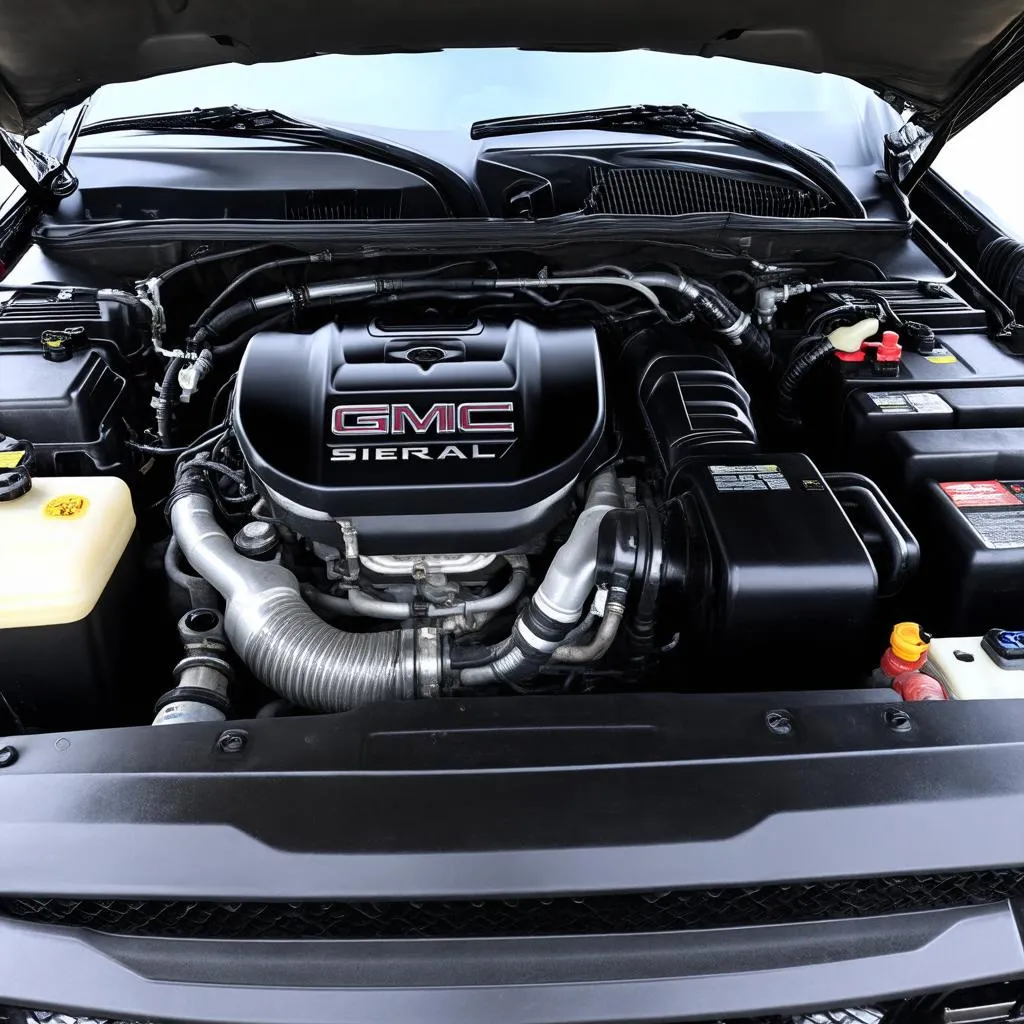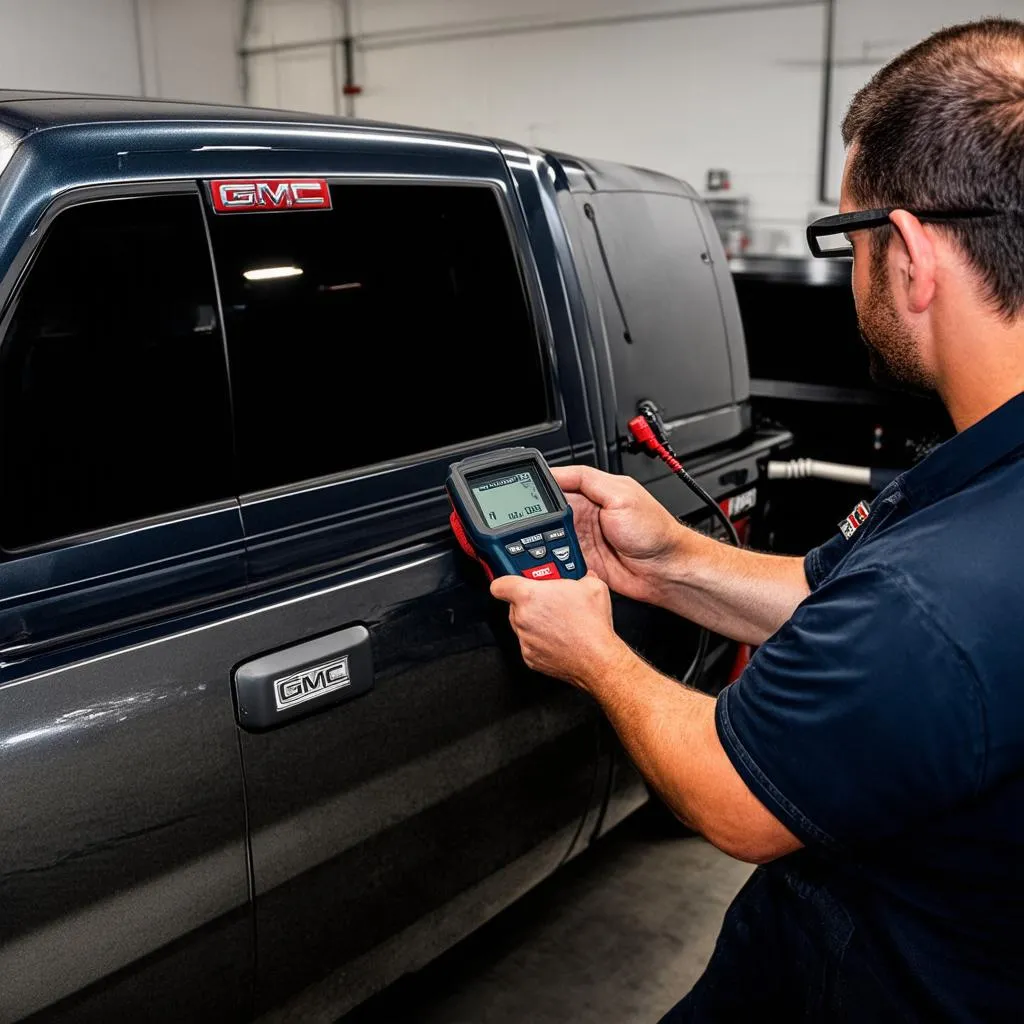Imagine this: you’re cruising down Highway 1, California sunshine warming your face, when suddenly your GMC starts to sputter. You glance at the dashboard and see a dreaded orange glow—the check engine light. Panic sets in. What now? Before you envision hefty repair bills, take a deep breath. Your car is communicating with you. That check engine light is a signal, and understanding it can save you time, money, and a whole lot of worry. One such signal comes in the form of the OBD code P1345. Today, we’ll demystify this code, focusing specifically on its implications for GMC vehicles.
What Does GMC OBD Code P1345 Really Mean?
In the world of automotive diagnostics, codes are king. Each code represents a specific issue detected by your car’s onboard computer, and P1345 is no exception. In layman’s terms, this code often indicates a problem with the camshaft position sensor or crankshaft position sensor relationship, particularly on Bank 1, which houses cylinder #1.
Think of it this way: Your engine relies on perfect timing, much like a well-rehearsed orchestra. The camshaft and crankshaft sensors are like the conductors, ensuring each component performs its role at the precise moment. If these conductors aren’t in sync, the entire symphony falls apart.
But what does this mean for you, the driver? It could translate into a range of performance issues, from:
- Rough idling – your engine feels shaky while the car is stationary.
- Engine misfires – a noticeable loss of power and potentially a jerking sensation while driving.
- Decreased fuel efficiency – your car starts guzzling more gas than usual.
- Difficulty starting – your engine cranks but struggles to turn over.
- In worst-case scenarios – your car might not even start at all.
Don’t panic! While these symptoms can be alarming, they don’t always spell disaster. Often, the issue is easily fixable.
Troubleshooting P1345: From Simple Checks to Expert Help
Before you rush to the mechanic, here are some steps you can take to potentially resolve the P1345 code:
1. The Visual Inspection:
- Check your gas cap: A loose or faulty gas cap can disrupt fuel pressure and trigger the code. Make sure it’s tightly sealed.
- Inspect for loose connections: Look for any visibly damaged, disconnected, or corroded wires around the crankshaft and camshaft sensors.
2. Delving Deeper:
- Check engine oil level: Low oil level can impact sensor readings. Top up if needed.
- Inspect timing chain/belt: If you’re mechanically inclined, check if the timing chain or belt is loose or damaged. This requires expertise and is best left to professionals if you’re not comfortable.
3. When in Doubt, Seek Professional Help:
If the problem persists despite your best efforts, it’s time to consult a qualified mechanic. They have the tools and expertise to accurately diagnose the problem.
“Ignoring a P1345 code can lead to more serious engine problems down the line,” warns John Miller, a seasoned mechanic with over 20 years of experience working on American cars. “Addressing it promptly can save you a lot of trouble and expense in the long run.”
FAQs about the GMC OBD Code P1345:
Q: Can I still drive my GMC with the P1345 code?
A: While you might be able to drive short distances, it’s not recommended. Driving with a P1345 code can potentially cause further damage to your engine.
Q: Is the P1345 code specific to GMC vehicles?
A: While this code can appear in various GM vehicles, the diagnosis and repair procedures might differ slightly depending on the make, model, and year of your car.
Q: How expensive is it to fix the P1345 code?
A: The cost can vary widely depending on the underlying cause. It could be a simple fix like a faulty sensor replacement, or it might involve more complex repairs like a timing chain replacement.
 GMC Sierra engine
GMC Sierra engine
Beyond P1345: Other Related Codes and Resources:
Understanding your car’s communication system is key to its longevity and your peace of mind. Here are some related OBD codes you might encounter:
- P0016: Crankshaft Position – Camshaft Position Correlation (Bank 1 Sensor A)
- P0017: Crankshaft Position – Camshaft Position Correlation (Bank 1 Sensor B)
- P0335: Crankshaft Position Sensor A Circuit Malfunction
- P0340: Camshaft Position Sensor A Circuit Malfunction
For in-depth information on specific GMC models and their diagnostic codes, refer to your vehicle’s owner’s manual or consult a trusted mechanic.
Need More Help with Your GMC’s Diagnostics?
Navigating the world of OBD codes and car repairs can be overwhelming. We understand! If you’re feeling lost or need expert guidance on your GMC’s diagnostics, don’t hesitate to reach out. Our team of automotive specialists is just a message away and ready to help you get back on the road with confidence.
Contact us via Whatsapp at +84767531508 for 24/7 support with diagnostic tools and expert advice.
 Mechanic diagnosing a GMC pickup
Mechanic diagnosing a GMC pickup
Remember, Knowledge is Power When It Comes to Car Care
Staying informed and proactive about your GMC’s health can save you from unexpected breakdowns and costly repairs down the line. We encourage you to explore our website for more insightful articles and resources on car maintenance, troubleshooting, and everything automotive.
Have you experienced the dreaded P1345 code with your GMC? What steps did you take to resolve it? Share your story in the comments below and let’s learn from each other’s experiences!
